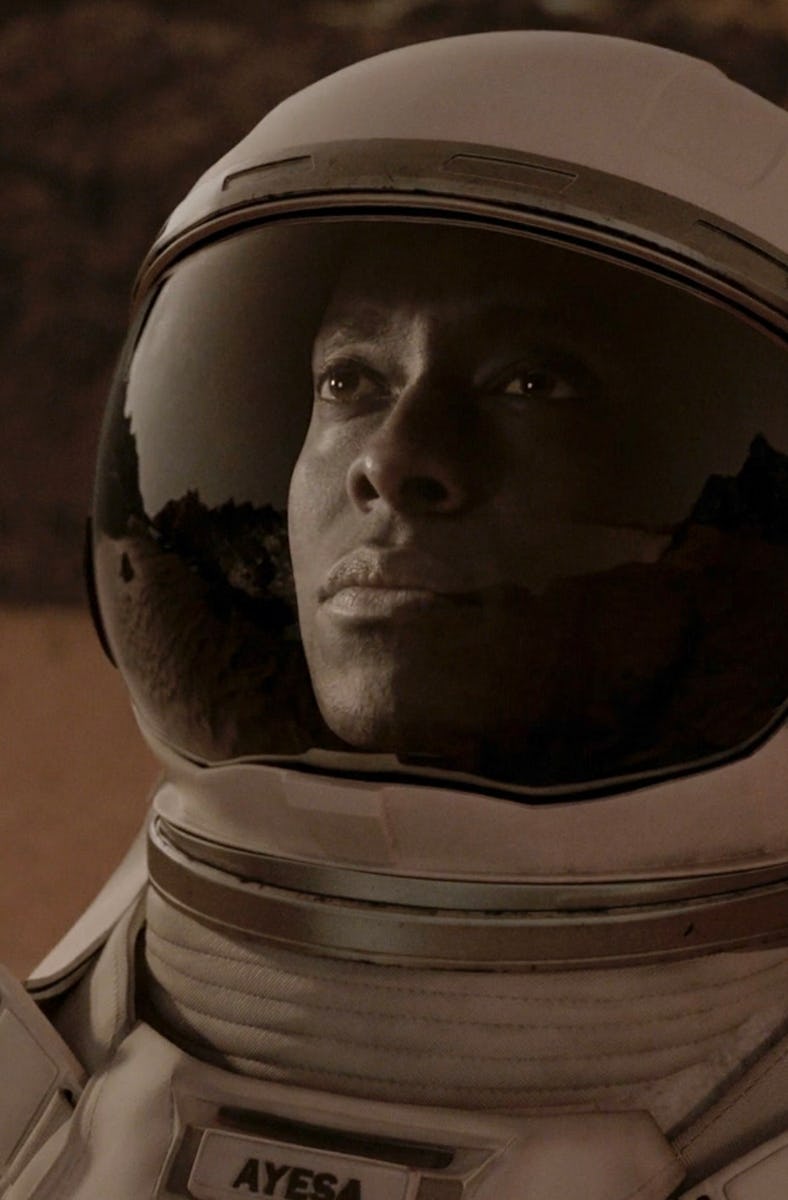For All Mankind Season 4 Finale Time-Jump Sets Up a New Season 5 Location
Mars has been conquered. Are the Outer Planets next?

Across four seasons and four decades of fictional alternate history, Apple’s ambitious, ultra-realistic sci-fi series For All Mankind has conquered the Moon and Mars and is now harnessing the power of the asteroids. So what’s next? As the Season 4 finale — “Perestroika” — teases yet another time jump to a new decade, it seems likely For All Mankind Season 5 might aim to conquer another new planet. Could a hypothetical Season 5 and Season 6 bring humanity to the outer planets? Could Kelly Baldwin go to Jupiter? What about Saturn?
While we don’t know where For All Mankind will go next, exactly, the Season 4 finale makes a big deal of one specific leap forward. And this final revelation, combined with a line from Season 1, likely means a solar system-wide expansion is coming next. Spoilers ahead!
For All Mankind Season 4 ending explained
The Goldilocks asteroid is a true game-changer.
Thanks to a last-minute ground-control intervention from Aleida Rosales (Coral Peña) and Margo Madison (Wrenn Schmidt), the battle for Happy Valley Base comes to a close. Dev (Edi Gathegi), Sam Massey (Tyner Rushing), Ed Baldwin (Joel Kinnaman), and the other Mars rebels secure the Goldilocks asteroid for themselves, and a new status quo emerges. Meanwhile, after making the audience extremely worried, Danielle Poole (Krys Marshall) is revealed to be alive and greets her new grandchild triumphantly after she returns to Earth. And finally, we get For All Mankind’s signature time jump to a new decade.
Since the Season 1 finale, each season of For All Mankind ends by jumping ahead nearly a decade to briefly tease what’s next. This time, we leave 2003 behind for 2012, as M83’s track “Midnight City” plays, reminding us just how close we’re getting to a contemporary setting. The iridium-rich asteroid that was captured and pulled into Mars orbit is now home to “Kuznetsov Station” — named for Grigory Kuznetsov (Lev Gorn), who perished in Episode 1 of this season while helping secure the asteroid in the first place.
Kuznetsov Station seems massive, meaning that, in just nine years, the people living on Mars have made the red planet a new port in the solar system. Cleary, Kuznetsov Station isn't just a place for people to live, it’s now one of two refueling stations in the solar system: the Moon and Mars. So, of course, Season 5 could likely depict how this has changed Mars, and how Happy Valley has grown into a Martian city. But what about beyond that?
For All Mankind’s Season 5 planet?
Danielle Poole is one of the few characters from Season 1 who, at this point could still appear in Season 5.
Way back in the Season 1 episode “Nixon’s Women,” set in 1970, NASA discovers water on the Moon. During the first briefing, Ed says the Moon could become a “refueling station on our way to the rest of the solar system.” Season 3 and Season 4 proved that this was true. The Moon became a stepping stone to Mars, which, essentially, reflects real-life spaceflight goals in the 2020s right now.
And, it turns out, this Season 1 line is even more relevant now than perhaps anybody realized. “That was a seminal moment in the show,” co-showrunner Matt Wolpert told Inverse in an interview in 2023. “We put that in for a purpose, which was to signal where we're going.”
According to Matt Wolpert and Ben Nedivi, realistically depicting humanity’s push into the solar system has always been the overall goal of the show. “In our vision of the show, Mars is not the end.”
So which planet is next for Season 5? Of course, the showrunners can’t reveal exactly which part of the solar system For All Mankind will go to next, but moving beyond the asteroid belt and into the outer planets feels like something we’ll see before the series ends. Assuming, of course, that we get several more seasons.
For All Mankind Season 5 release date
Kelly Baldwin (Cynthy Wu) on Mars. Could she go further in Season 5?
As of this writing, For All Mankind has not been formally renewed for Season 5, meaning a release date has not been revealed yet. It’s possible that we won’t get Season 5 until 2025, meaning there could be more than a year gap until we see what happens next. In several interviews, co-creators Ronald D. Moore, Matt Wolpert, and Ben Nedivi all said the initial arc for the series would cover seven seasons, pushing the narrative past a contemporary setting and slightly into the future.
Could Season 7 end with descendants of characters we see now living in the orbit of Neptune?
“We’re not saying those are definitely the places we're going to go to,” Wolpert said. “But that vision of never kind of taking your eyes off the horizon, that’s in the DNA of the show.”